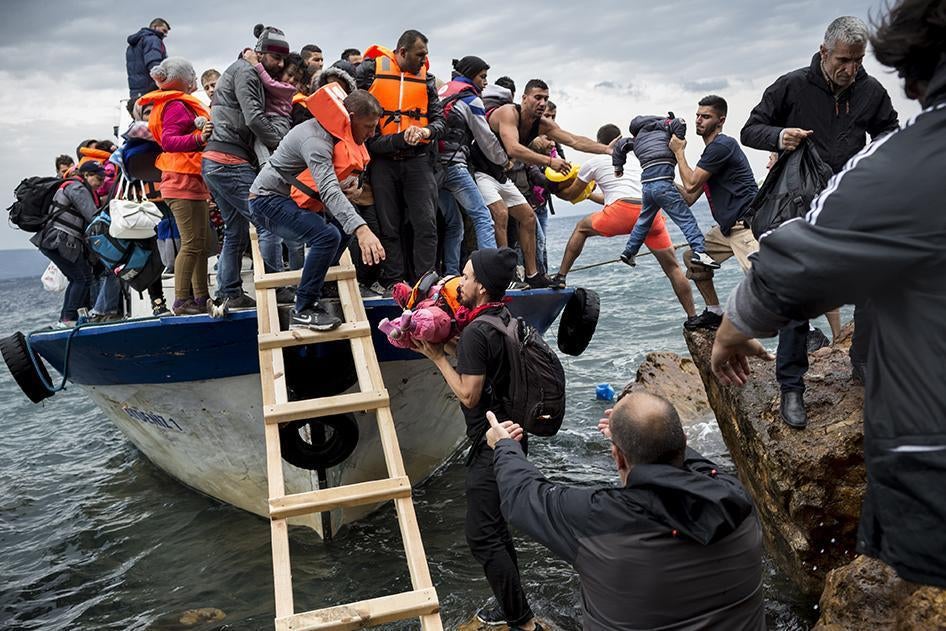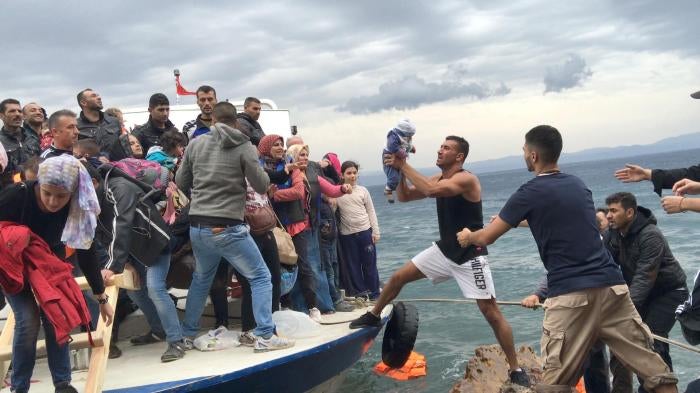(Brussels) – European Union governments should take urgent action to bring Europe’s response to the refugee challenge, now a full blown EU crisis, in line with their legal responsibilities and stated values, Human Rights Watch said in a report released today.
The 16-page report, “Europe’s Refugee Crisis: An Agenda for Action,” analyzes the failings of the EU governments’ response to the crisis and sets out recommendations to improve Europe’s response across four broad areas: reducing the need for dangerous journeys; addressing the crisis at Europe’s borders; fixing the EU’s broken asylum system; and ensuring EU cooperation with other countries that improves refugee protection and respect for human rights.
-
Save lives at sea through robust search-and-rescue operations in the central Mediterranean and the Aegean Sea;
-
Reduce the need for dangerous journeys by increasing refugee resettlement, facilitating family reunification, and providing humanitarian visas;
-
Resolve the chaos at Europe’s borders through increased preparedness and coordination, swifter implementation of an agreed-upon emergency relocation scheme, and access to fair and efficient asylum procedures – including at the Greek and Bulgarian land borders with Turkey – and decent reception conditions throughout the region;
-
Fix the EU’s broken asylum system, and start by replacing the flawed Dublin system with a permanent mechanism for distributing asylum seekers equitably and enforcing EU standards across all member states;
-
Respect rights in migration cooperation with countries outside the EU by carefully designing, carrying out, and monitoring programs;
-
Put human rights at the center of diplomatic and other efforts to tackle root causes of refugee and migration flows.
The EU should also ensure that efforts to counter smuggling and human trafficking do not endanger lives, prevent people from seeking international protection, or return them to countries where they would face abuse.
“Drowning at sea or freezing in a Balkan field can never be acceptable forms of border control,” Sunderland said. “European governments should expand safe and legal channels, and ensure access to asylum and humane treatment at its borders and inside every single member state.”











